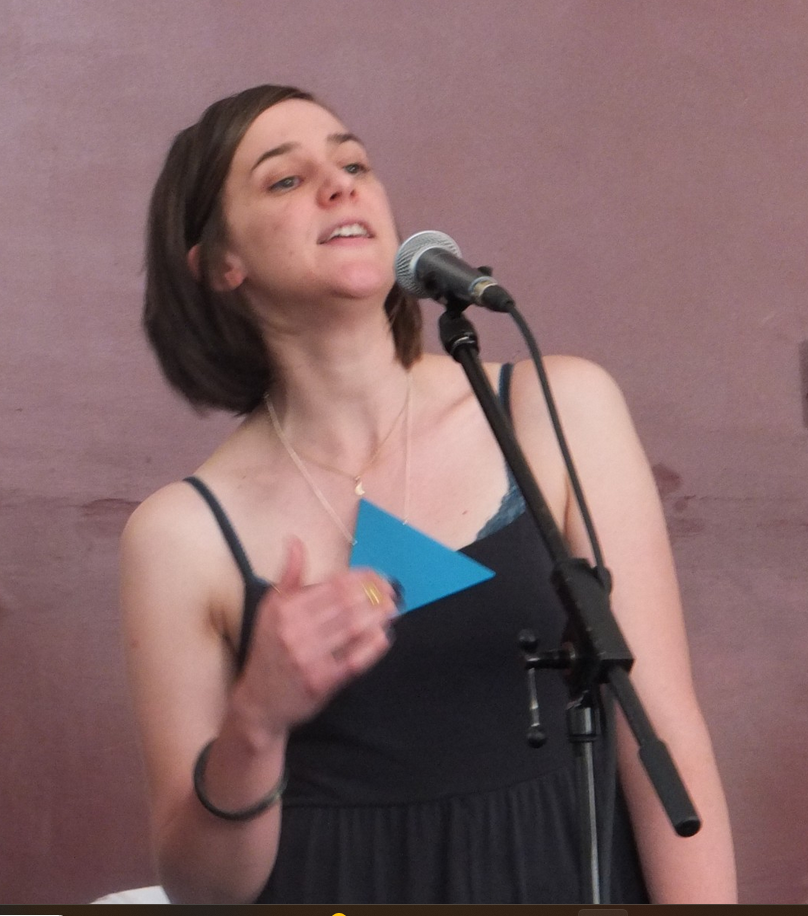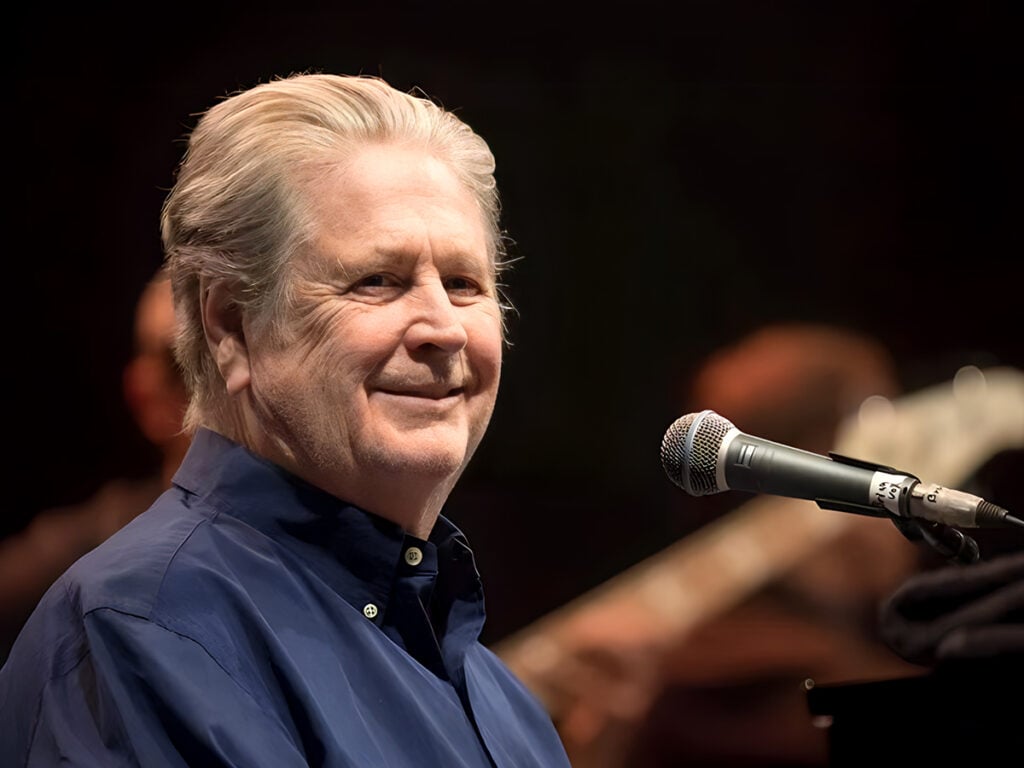My wife and I went to see Josienne Clarke in the Junction in Cambridge a couple of months ago, when she and her band were doing a performance of the songs of Sandy Denny. I’m no folk buff and knew very little about Sandy Denny and her songs (I’ve learned a bit more since), but I first encountered Josienne Clarke some years ago, I often listen to her music – she normally sings mainly her own stuff – and always go to see her if she’s performing in this area.
I get easily bored, but I was spellbound throughout the concert, as I always am when I see her. She has a wonderful singing voice. It’s not especially powerful – she’s not a belter-out of songs – but is very precise and expressive. She seems to me someone who takes very seriously the craft of singing. When performing she has a lovely way of describing the music as she makes it with graceful twirling spirals of her hands – something I find myself doing myself when I listen to her music at home. (I think the photo above captures her right hand in mid-twirl). Hers is definitely a folk singing voice, though she is not a folk purist, and her band plays electric instruments, keyboards, drums.
After the concert I went to the merchandise table and bought her latest album Parenthesis, I on CD. This was, strictly speaking, pointless, as I never play CDs these days, and listen to her music on Spotify. So, as I admitted to my wife I basically spent £15 just so as to be able speak to her, but when I got to the front of the queue, all I could think of to say was ‘You’re a wonderful singer, Josie.’ As my wife teasingly pointed out, I really was quite star-struck. Anyway, she needed the money so as to be able to record a Sandy Denny album.
When I first came across her she was performing as a duo with her then partner Ben Walker, who played guitar (she played guitar also, but he was the one that did most of the fancy stuff) and did a lot of the arrangements on their recordings, though she was the singer and the songwriter. It was apparently a very painful break-up and she’s since written a number of very raw break-up songs. My favourite of these is ‘Dark Cloud’, which you can hear on Spotify here – a beautiful song, a little less raw than some of the others, about living with someone who refuses to let you make them happy, and makes you feel guilty if you ever dare to be happy yourself.
She did some beautiful songs in the duo, but she really didn’t need the help. On Parenthesis, I, she’s done all the production and arrangements, including adding saxophone and recorder parts that she played herself. My favourite song is probably ‘Dead Woman’s Bones‘ – a song about a man appropriating the brilliance of a dead woman songwriter. I wonder if this is about Sandy Denny, who I am pretty certain is the subject of another song on the album called ‘Magic Somehow’- Denny died at 31, after deliberately throwing herself down some stairs – but I don’t know enough about her to know if there is anyone who can be accused of appropriating her work in that way. Or perhaps the song is about how Clarke’s former partner made her feel – or simply about women artists throughout history whose work has been claimed by men. Anyway, the song works on every level, including a very beautiful and complex arrangement. God knows how many times I’ve played it.
Josienne Clarke isn’t exactly a household name – household names don’t tend to sell their own merchandise – but she has loyal followers. She deserves to be better known, but then she wouldn’t play the small venues which she does so well. Not being famous but having people who really appreciate you is a good place to be in some ways. (Speaking as a writer in that position.)
One thing I thought was a pity was that the average age of the audience was, like me, more than twenty years older than her. (She’s in her early forties). I hope this reflects the fact that Sandy Denny died nearly half a century ago and her fans are getting old, and isn’t a sign that this kind of music only appeals nowadays to people my age.
Josienne Clarke’s website

